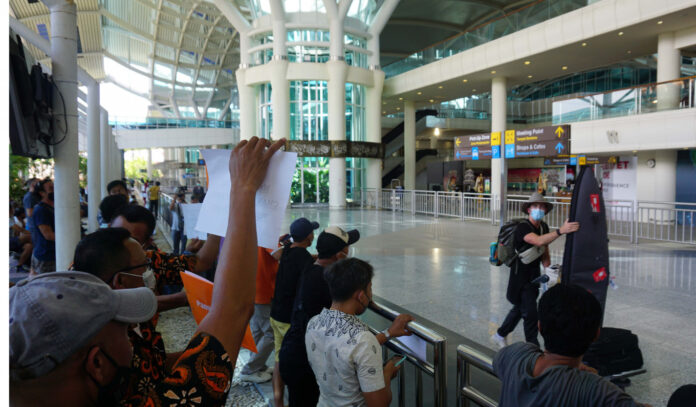Editorial board (The Jakarta Post)
Jakarta ●
Fri, October 14, 2022
Things were looking so good for Bali when the year was young. Relaxed pandemic curbs allowed people to move more freely and restaurants, malls and other venues to stay open longer. The quarantine for vaccinated foreign travelers was lifted, and several countries were added to the list for easy visas on arrival.
The national economy was buoyant as key Indonesian export commodities like crude palm oil and coal fetched high prices in the global market, while consumers were dying to engage in some revenge travel and entertainment after years of restrictions.
The first international flight after the COVID-19 crisis touched down in Denpasar on Feb. 15, marking a new dawn for the badly battered tourist industry.
But what a difference a few months make. War in Ukraine has since brought geopolitical tensions to a boiling point, sanctions imposed on Russia have driven up global energy prices to stoke inflation that was already heating up fast after years of central banks flooding markets with cash.
To anyone looking on from here, those global problems may seem far away. After all, Indonesia has been a shining star as of late when compared with most developed and emerging economies.
But tourism, let us not forget, is largely an export industry. Hence, lackluster growth in China amid ongoing lockdowns, the outright recession feared in Europe and the United States as well as severe economic risks in Japan will all hit Indonesia.
People from those countries are traditionally the backbone of Bali’s tourist industry. They spend more on average and stay for longer periods of time than domestic or ASEAN tourists. If they cut back on holiday travel, Indonesia’s tourist industry faces a dark 2023.
Before Bali even got a chance to recover and generate funds for new investment, many owners of restaurants and hotels, along with street vendors, drivers and surfing instructors, will feel like they are back to square one.
There is a good case to be made here for the government to step in with meaningful but temporary measures to keep the recovery going until global demand picks up again, because restarting later may be more costly, as employees would need to be rehired, neglected facilities refurbished and many businesses resurrected from the dead.
More domestic travel seems like a good replacement for a lack of foreign tourists at first sight, but it is the foreigners that bring revenue into the country, so state-funded incentives to lure them should be considered.
A passenger service charge exemption was granted during the worst time of the pandemic. Its effect is doubtful, because what kept foreigners away back then were not financial concerns as much as travel restrictions and cumbersome rules. Now, it is worry about rising prices and fear of unemployment, financial concerns that could be lessened to some degree by making a holiday in Bali cheaper.
Subsidizing flights or hotels in some way or another would not turn a bad year into a good one, but it might just make it a little less bad.










